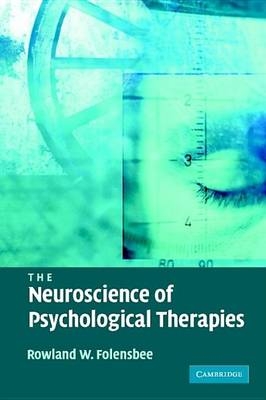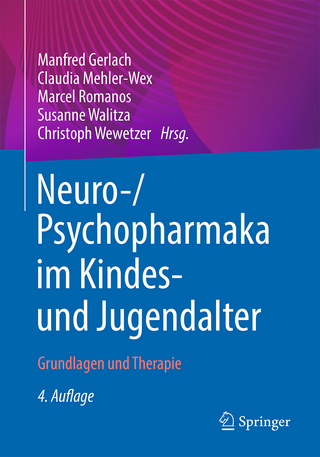
The Neuroscience of Psychological Therapies
Cambridge University Press (Verlag)
978-0-521-68188-9 (ISBN)
The Neuroscience of Psychological Therapies summarizes knowledge of brain function and brain behavior relationships within the context of psychotherapy implementation. It describes how specific locations in the brain carry out specific activities, how the different activities are combined to yield normal and pathological behavior, and how knowledge of brain activities can guide psychological assessment and intervention. Specific topics include the influence of neural networks on discovery and change, the therapist's neuroscience, communicating with patients using the brain as reference, and using neuroscience concepts to compare and integrate traditional schools of psychotherapy. Applying a neuroscience framework to conceptualization and treatment of depression is offered as an example, and specific issues associated with trauma and false memories are discussed. The book is aimed at anyone working within a psychotherapy framework and who wishes to discover more about brain function and brain/behavior relationships.
Rowland W. Folensbee is a Clinical Associate Professor in the Menninger Department of Psychiatry and Behavioral Sciences at Baylor College of Medicine, Houston, Texas. He maintains a private practice in psychology and consults in schools. He received his doctorate in psychology from The Pennsylvania State University. His training included behavioral, cognitive behavioral, and psychodynamic approaches. His passion for the past twenty years has been the integration of neuropsychology and neuroscience into clinical assessment and intervention. One of his primary goals has been to translate this integration into language that can be understood and used by lay persons and clinicians who are not immersed in the complex world of the brain. The present book is the product of his passion.
Acknowledgements; 1. Introduction; 2. Neuropsychological concepts; 3. Neural networks; 4. Memory and learning; 5. Affect; 6. Anxiety; 7. Processes of brain development; 8. Themes of brain development; 9. Basic concepts: summary and integration; 10. Introduction to neuroscience applications in psychotherapy; 11. Intake and assessment; 12. Neural networks in therapy; 13. Affect in therapy; 14. Memory and change; 15. Anxiety and change; 16. The experience of improvement in psychotherapy; 17. The therapist's neuroscience; 18. Communicating with patients through neuroscience; 19. Integrating traditional therapies; 20. Applying neuroscience to depression intervention; 21. Neuroscience and psychotherapy: moving forward; Appendix 1. Neuroimaging and psychological therapies.
| Erscheint lt. Verlag | 3.5.2007 |
|---|---|
| Zusatzinfo | 2 Tables, unspecified; 1 Halftones, unspecified; 13 Line drawings, unspecified |
| Verlagsort | Cambridge |
| Sprache | englisch |
| Maße | 152 x 226 mm |
| Gewicht | 340 g |
| Themenwelt | Medizin / Pharmazie ► Medizinische Fachgebiete ► Neurologie |
| Medizin / Pharmazie ► Medizinische Fachgebiete ► Psychiatrie / Psychotherapie | |
| Naturwissenschaften ► Biologie ► Zoologie | |
| ISBN-10 | 0-521-68188-X / 052168188X |
| ISBN-13 | 978-0-521-68188-9 / 9780521681889 |
| Zustand | Neuware |
| Haben Sie eine Frage zum Produkt? |
aus dem Bereich


